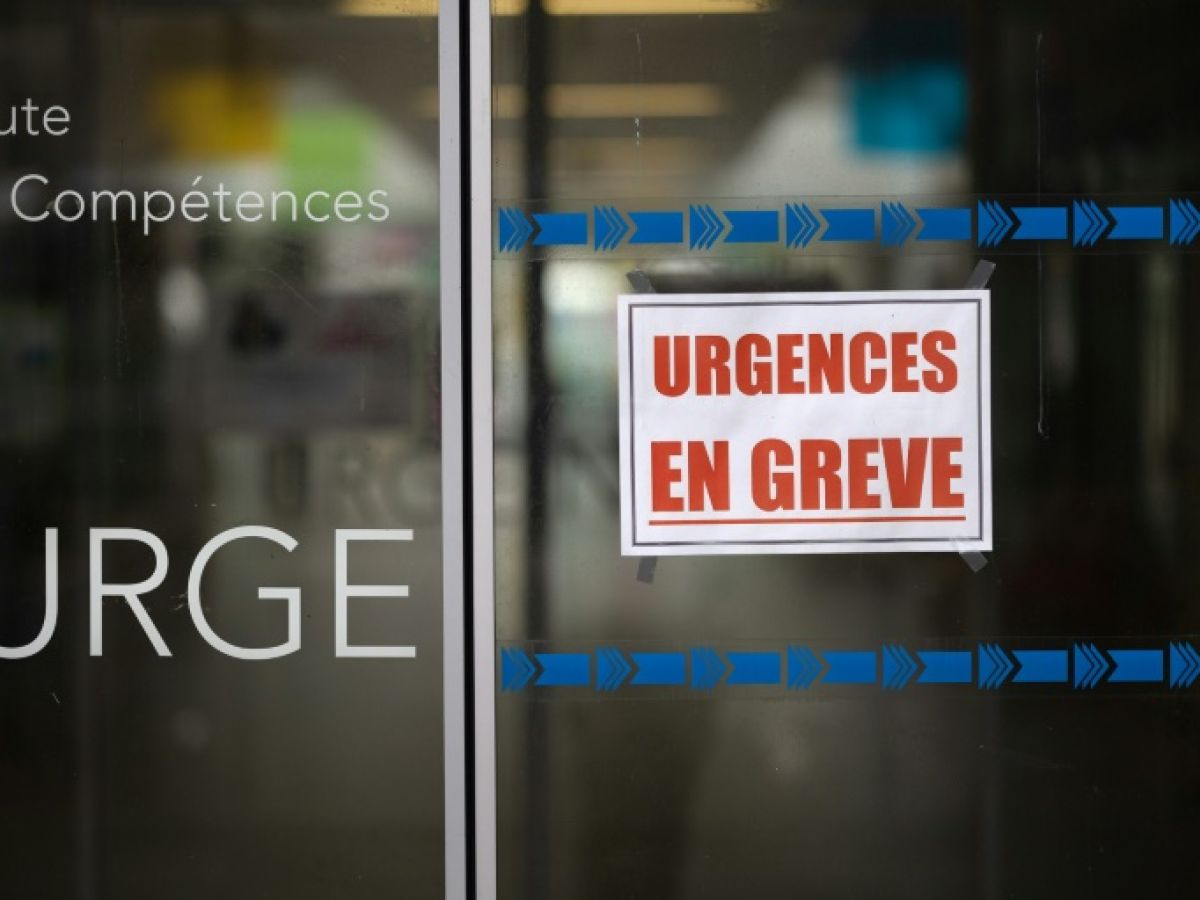"Mrs. K…, 92 years old, spent 29 hours on a stretcher on July 27," reads a poster at the entrance to the Brest emergency room. In the middle of summer, dozens of elderly patients suffered the same fate. A "disrespectful" and "dangerous" situation denounced by the staff.
"I knew that the public hospital was sick, but not to this extent. It's scary!" confides Sophie (who did not want to give her name), a 57-year-old civil servant.
In June, this Breton woman spent 13 hours in the Brest emergency room, accompanying her septuagenarian mother, who had fallen and lost consciousness. "I came to treat my mother. I left injured," she recounts in a written statement sent to elected officials and the management of the CHU.
The fifty-year-old told AFP she was particularly shocked by "the dismay of people waiting." "They called but didn't necessarily get an answer because the staff was overwhelmed. It's indecent," she said, describing it as "war medicine" and "mistreatment of the whole family."
By management's own admission, 71 patients over 75 spent more than 23 hours in the emergency room between July 10 and August 7.
The CGT of the CHU has displayed the most emblematic cases on a "wall of shame", made up of three billboards, displayed intermittently at the entrance to the building. We learn there that the "record" of the summer is held by a certain Mrs. D., 78 years old, who spent 34 hours on a stretcher on July 17.
"We hope that management will quickly take stock of the situation," says Thomas Bourhis, secretary of the union, who recalls the "loss of opportunity" suffered by patients who stay too long in the emergency room.
According to a scientific study published in November 2023, spending a night on a stretcher in the emergency room increases “the risk of hospital mortality by almost 40%” for a patient over 75 years old.
"We all know that it is dangerous to leave elderly patients in emergency rooms for too long. We have publications that tell us this and we do it anyway," grumbles an emergency physician, speaking on condition of anonymity.
"It's like telling a surgeon: spit in your hands before operating," he compares, while assuring that he "completely" supports the strike movement launched at the beginning of July by the CGT to denounce this situation.
– “Same hassle” –
"We are all in the same mess and the same disorganization of a service due to a lack of resources and beds," adds Anne-Dominique Curunet-Raoul, emergency physician and member of the SAMU-Urgences de France union.
"The conditions in which our patients are received are not good, it is not respectful. We have the impression that we are not doing our job well," she explains.
At the center of the criticism: a former ambulance garage, transformed into an "extended waiting room." This place, sometimes called an "airlock" or "storage area" by the staff, can accommodate 22 patients on stretchers.
With no natural light, no water or food, it offers little privacy to patients. "A stretcher shed," Sophie describes, where some patients wait day and night.
"It's not a waiting time," corrects Laurence Jullien-Flageul, general care coordinator at the CHU. "We are sure of the care: as soon as you arrive at the emergency room, you are welcomed by a nurse and during this whole time, you are monitored by our teams."
The management also emphasizes its "sustained efforts" to improve the situation: hiring of 24 nurses and nursing assistants in the emergency room, opening of 58 new beds, reduction in the number of visits to the emergency room.
"We have staff numbers that are consistent with our activity," says Ms. Jullien-Flageul. "Now there are days when it can be more complicated than others, we are on unscheduled activity," she adds, speaking of days "early August" with "more than 180 passages per day."
"We cannot be satisfied with waiting times... well, waiting and care," she continues. "Our goal is to always continue working to reduce patient care times."

